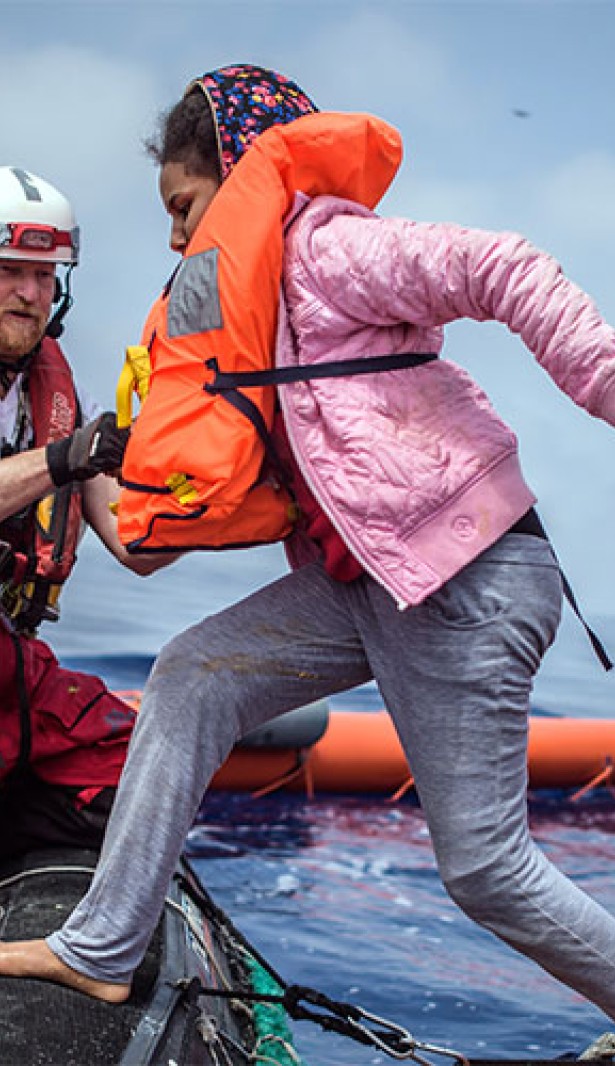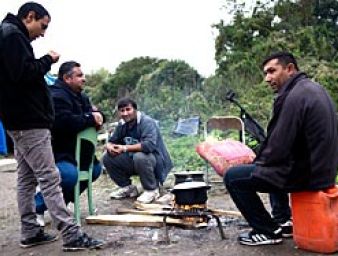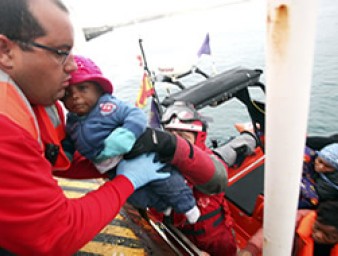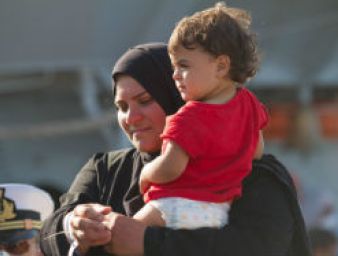Refugees and other migrants do not lose their rights by crossing borders
20 June 2018
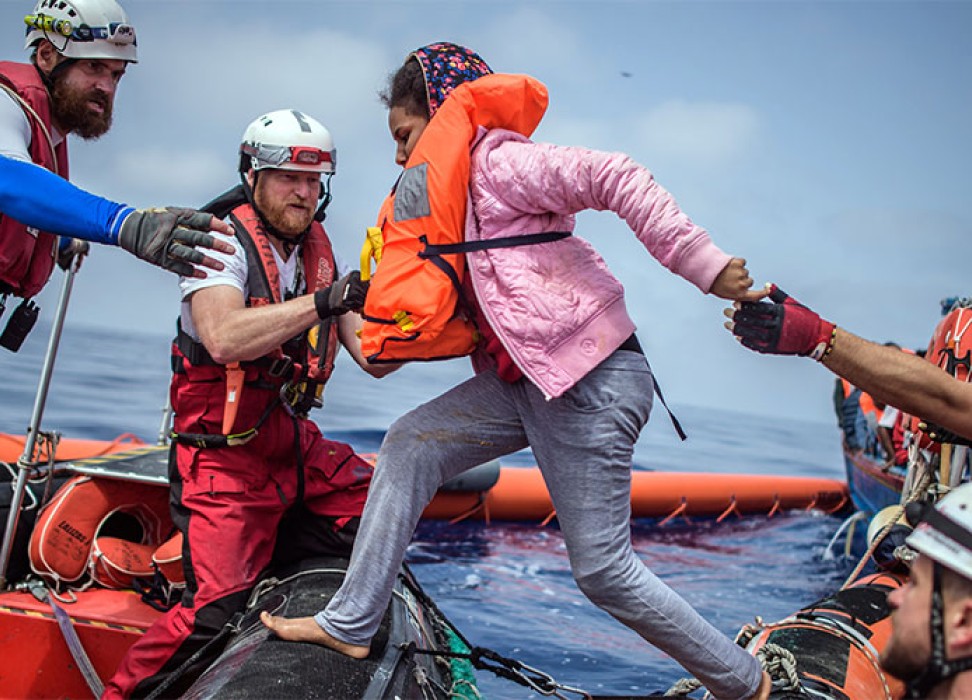
“Burden,” “cockroaches,” “flood,” “horde”, “illegal,” “rabid dogs,” “rapists,” “terrorists;” these words filled with hatred against people on the move have launched internal conflicts, genocides and wars on our planet in the past century.
These words are used to further the “dehumanisation” of refugees and other migrants, and have permeated political discourse in many countries around the world that has fuelled a climate of exclusion and violence against people on the move.
Public opinion surveys have revealed a consistent over-estimation of the numbers of migrants in many destination countries; and widespread misconceptions about the scale and nature of migration have contributed to prejudice and rising xenophobic populism, which is often fuelled by political leaders and media who use incitement and hatred against migrants for their political advantage.
“Blaming migrants is an easy way for political leaders to gather support from nationals, exploiting and exacerbating sentiments of discrimination and xenophobia. In the absence of substantive public policies to address economic and social problems at home, migrants become an easy target,” said Felipe González Morales, UN Special Rapporteur on the human rights of migrants.
Concerns about foreigners stealing jobs and representing a burden to society are often in sharp contrast to the evidence, which shows that migrants contribute in diverse ways to the economy and society of communities of origin and destination. Research shows that
For example, over the past ten years, migrants represented 47 percent of the increase in the workforce in the United States and 70 percent in Europe.
Further, the vast majority of refugees continue to be hosted by developing countries. According to the UN Refugee Agency (UNHCR), the countries that host the most refugees are Turkey (3.5 million), Uganda (1.4 million), Pakistan (1.4 million), Lebanon (1 million) and Iran (almost 980,000).
Still, across the world, borders are increasingly securitized or even militarized and the act of crossing a border without a visa – which many refugees and migrants in vulnerable situations are forced to do to seek safety and which, for all migrants, should at most constitute an administrative offence – is criminalized.
In recent weeks, the zero tolerance policy put in place along the United States southern border has led to people caught entering the country irregularly being subjected to criminal prosecution and having their children taken away from them as a result. Almost 2,000 children have been forcibly separated from their parents and detained, causing severe trauma to them and their families.
In Hungary last month, a bill was presented to Parliament that would criminalize human rights monitoring at borders and the work of human rights defenders who provide information, legal aid and assistance to migrants. These prohibitions, and related measures adopted by the Government of Hungary in recent months, stigmatize and harm migrants in vulnerable situations and those who seek asylum.
Such criminalization and dehumanization of migrants and refugees by policies and rhetoric sends the message that they have neither rights, nor a place in society. As a result, some migrants fear harassment by simply being in public spaces, avoid seeking help when they’ve been attacked, and are forced to endure discrimination without being able to seek justice.
“Migrants are affected in many ways by the rhetoric of political extremists. It affects their chances to integrate into the societies they live in; they are labelled as the causes of the problems; their protection under the rule of law is weakened, as they are deprived of many rights that nationals effectively enjoy,” González Morales said. “The most basic human rights of migrants can be at stake, including economic and social rights, the right to liberty and security, and even their right to life.”
Since 2015, the UN Human Rights office has sought to find ways to change the narrative on migrants and refugees from one based on fear to a positive narrative based on evidence and shared values of human rights, solidarity and empathy.
In December 2017, the office launched a series of short videos that aim to dispel negative public perceptions of migrants by giving a voice to migrants themselves, their families and friends.
Through telling their stories, the office has sought to empower migrants and the communities into which they arrive, and to emphasise that we have more in common than that which divides us. The series is a reminder that migration is at its heart a fundamentally human phenomenon and that behind the statistics are human beings with human rights.
“To confront [intolerance and hate speech], the benefits of migration from an economic and cultural point of view should be emphasized. It is also necessary to call on the attention of countries which are currently predominantly destination countries of migrants, but that not long ago were countries of origin themselves,” González Morales said.
“The flows of migration have experienced many changes in the past and will continue experiencing changes in the future.”
20 June 2018
